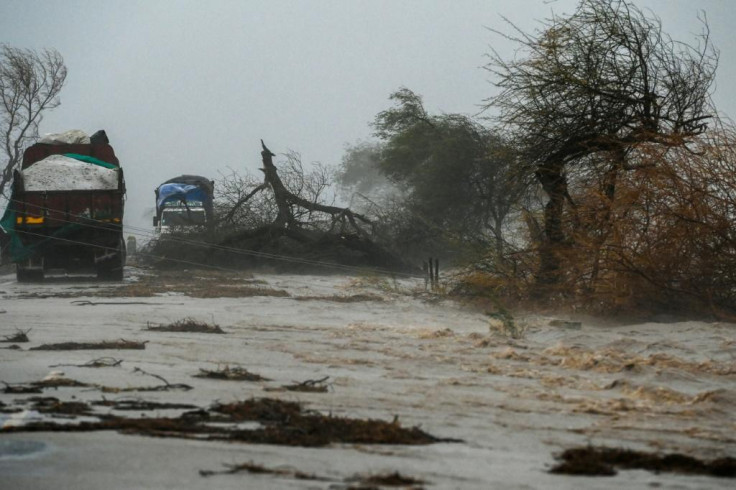A reported 3 in 4 children in South Asia are living in extremely high temperatures
Following Cyclone Biparjoy, a UNICEF report has revealed that three-quarters of children in South Asia are exposed to life-threatening climate extremes.

Three-quarters of children in South Asia are already exposed to extremely high temperatures compared to only one in three across the globe.
UNICEF has estimated that approximately 76 per cent of people under the age of 18, which is equivalent to 460 million children, in the South Asian region are exposed to extremely high temperatures – where 83 per cent or more days in a year exceed 35 degrees Celsius.
Due to climate change, July 2023 was the hottest month ever recorded globally – which raised further concerns amongst environmentalists about a future where people are expected to face more frequent and severe heatwaves.
An investigation that studied the annual average temperatures measures across areas where there is a type of climate extreme, found that South Asia is one of the hottest continents on Earth.
The data also showed that almost 30 per cent of children across South Asia are exposed to 4.5 or more heatwaves per year, in comparison to 24 per cent of children worldwide.
In June 2022 Jacobabad a city in the Sindh province of Pakistan was recognised as the world's hottest city, with temperatures reaching the high 40s. The extreme heatwave exposed 1.8 million people to severe short and long-term health risks.
Jacobabad is burning with heat. Little kids have resorted to take bath in dirty flood water to fight with the heat. Pakistan is faced with an insane level climate catastrophe. pic.twitter.com/K9AfRM08c6
— Bushra Mahoor | Period Justice for All (@bushramaahnoor) September 22, 2022
Sanjay Wijesekera, the UNICEF Regional Director for South Asia, revealed: "With the world at global boiling, the data clearly show that the lives and well-being of millions of children across South Asia are increasingly threatened by heat waves and high temperatures. Countries in the region are not the hottest in the world right now but the heat here brings life-threatening risks for millions of vulnerable children."
"We are particularly concerned about babies, toddlers, malnourished children and pregnant women as they are most vulnerable to heat strokes and other serious effects," Sanjay Wijesekera added.
In South Asia extreme heatwaves are regularly followed by rain seasons. Since children struggle to adapt quickly to temperature changes, they are unable to remove excess heat from their bodies while the temperature cools briefly.
The vast change in temperatures in a small period of time leaves children victim to symptoms and illnesses like higher body temperatures, rapid heartbeats, cramps, severe headaches, confusion, organ failure, dehydration, fainting and comas.
Infants in South Asia are also at risk of suffering from poor mental development, neurological dysfunction and cardiovascular diseases.
Pregnant women who are particularly susceptible to heat are among those who are endangered by climate change and are often victims of early contractions, hypertension, seizures, high blood pressure, preterm births and stillbirths.
Wijesekera said: "Unless we act now, these children will continue to bear the brunt of more frequent and more severe heatwaves in the coming years, for no fault of theirs."
Last month, in June 2023, Cyclone Biparjoy – which translates to 'disaster' in Bengali, made landfall in India's western Gujarat state and close to the Pakistan border. After expecting an annual average of one to eight tropical cyclones, local authorities evacuated 100,000 people in vulnerable coastline areas to safe havens in India and Pakistan prior to the arrival of Cyclone Biparjoy.
Cyclone Biparjoy came swirling towards the Gujarat coast in India with speeds of up to 145 kph, uprooting more than 300 electric poles which led to power outages in approximately 45 villages.
Before Cyclone Biparjoy had even made its landfall, it had already claimed the lives of three young boys off the coast of Mumbai earlier in the week.
Cyclone Biparjoy has since been named by climate experts as one of the deadliest cyclones to hit India in the last 10 years.
The Chief of India's National Disaster Response Force, Atul Karwal, told reporters: "This is nature's force, and you can't predict 100 per cent. We need to be prepared for the worst."
© Copyright IBTimes 2025. All rights reserved.





















